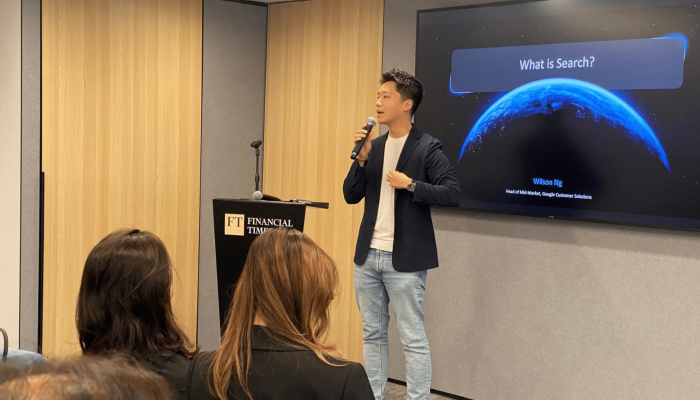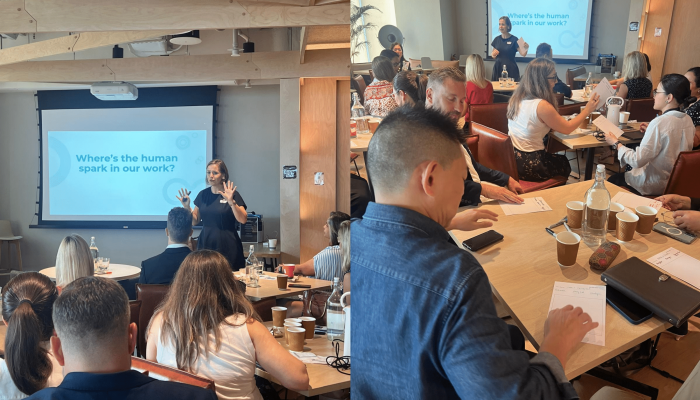Chris is the founder of TEAM LEWIS, a marketing practice that campaigns for commercial and community causes. In this article he highlights the current golden age of creativity, emphasising that creativity is not about commerce but about making the invisible visible and producing original ideas. Chris suggests that the era of "killer creative" is over, and everyone in the industry has become like dolphins, playful and collaborative.
Just before he turns into shark sashimi, Quint the scarred old fisherman in Jaws describes his nemesis: “Lifeless eyes, black eyes, like a doll's eyes. When he comes at ya, doesn't seem to be livin'...until he bites ya.” This could describe the relationship that most account handlers had with creativity back in the “good” old days.
You see, decades ago, every agency head was the mayor of a sort of Amityville theme park. Instead of Shamu, they had a shark tank where they’d bribe the beast with industry awards and their friend Charles to balance beach balls with the occasional downside of them devouring a director. Client or staff. Shark no care.
In return, the Great White would smile and tell you of their new idea. And you smiled back the way your dog smiles at the vets. You genuflected. You threw chum. Thing is, that’s not creativity, that’s conceit. The old ad world was a sharknado of Schhh…you-know-who and surnames that sounded like seventies prog rock bands. This type of creativity was the inverse of inclusivity.
When technology came, it lowered the price of everything and democratised creativity. Now everyone can do CGI, augmented reality, dual track video and AI generated video VOs for a fraction of the sardines. The tech did something else really important - it inflated addressable audiences massively. Now, their sheer size meant they parenthesise a rainbow audience by gender, ethnicity, ability, and sexual preference. Creative teams therefore need a similar provenance. Diversity had finally triumphed over divisiveness. And the world was the better for it.
The age of Great Whites wasn’t over. They just went off to hunt in the waters off Washington and Brussels, where it could continue feeding on reactionary politics.
Today, there’s never been a better time to be in the creative industry. Why? Because the demand for social content is growing as fast as attention spans are shrinking. And in Britain, the raw material to feed this appetite is essentially free. Here, you don’t need to steal it. It’s just left out there lying around for anyone with the attitude to pick it up and play with it. It’s in our museums, galleries, libraries, countryside and our history. It’s on BBC Radio and if you want to pay a little bit more, you can get it at concerts, theatres and cinemas. There’s no such thing as a new idea. Creativity is just the history you don’t know. Go back and it’s been done before. In a different way at a different time, granted.
You see the best creatives are kleptomaniacs cetaceans. They steal history and play with it like dolphins. They have minds like attics. They remember stupid stuff. If random was a destination, they’d have a season ticket. The best of the new breed are happy, humble, honest and hard-working. They’re happy to play in the bow wave or boardroom with others. Dolphins don’t care. Dolphins like people.
That’s why the creativity in this country has the potential to be world-class. There are many definitions of creativity – it’s a previously unconnected matrix of thought – the process of making the invisible, visible – the ability to produce original and unusual ideas – they all have one thing in common. None of them include anything about commerce. Commerce is measurable and therefore credible. Imagination is difficult to measure. You don’t get any marks for it at school. You don’t get marks for a lot of things that make people successful. Like empathy. Like resilience. Like collaboration. Like determination. We do need different skills because money is the by-product of creative culture. Not vice-versa. But that’s another story.
There’s one other reason for this golden age. Creativity needs credibility and another truly world-class industry in Britain is The City. People still bring money here to be traded, invested, and turned into more money because Britain (despite everything, I know) is still trusted. The tradition. The history. The reliability. The only people that don’t get the British brand are, strangely enough, the British. Creativity involves risk. Risk is more tolerable where there is credibility and trust. That’s why they come.
People often wonder why the City and the BBC never teamed up to create a British Hollywood. Well, they did. They don’t make a massive to-do about it. The sort of creativity they do is quality not quantity. Like the British brand itself.
So let’s go back to the beginning. No, not the fatuous Jaws theme. Your beginning. What was it that attracted you into this business? Was it the vowel sounds of admiration that you knew would be emitted like involuntary flatulation from other professionals over dinner? Was it the ermine and gold coins that promised to drench you in recognition and reward? Or was it something else? Go on. Admit it. Was it the creative thing? No shame in that. All competence follows preference. We get good at what we like doing.
Killer creative is dead. We’re all dolphins now.



